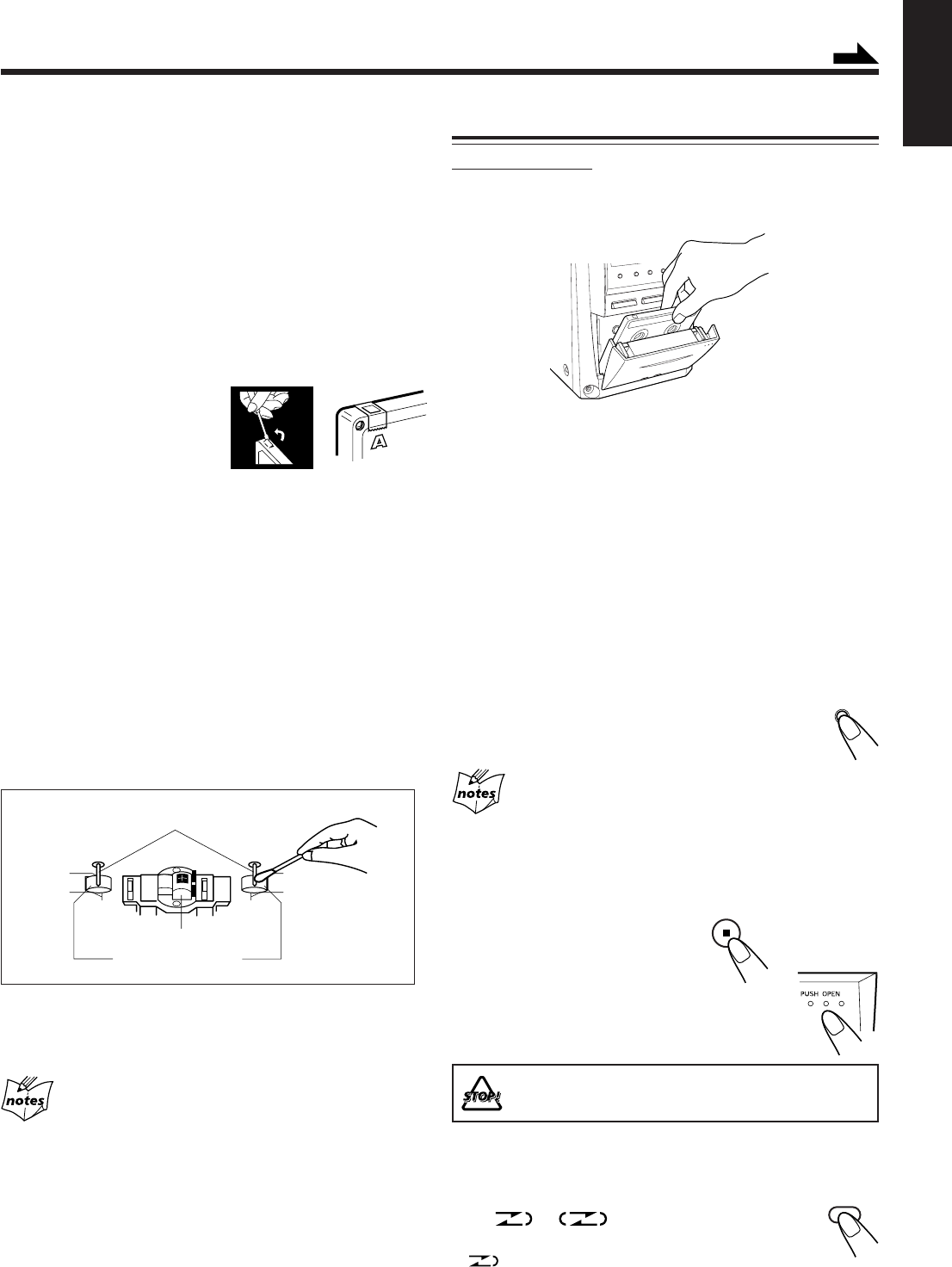
18
English
Recording
Recording on a Tape
On the unit ONLY:
1
Put a recordable cassette in with the
exposed part of the tape down.
2
Close the cassette holder gently and check
the recording direction for the tape.
• If the tape direction is not correct, press TAPE 2 3
twice then 7 to change the tape direction.
• If you want to record on both sides of a tape, see “To
record on both sides—Reverse Mode.”
3
Start playing the source—FM, AM or
auxiliary equipment connected to AUX
jacks.
• When the source is the CD player, see “Disc Direct
Recording” on page 19.
4
Press REC (recording).
The REC (recording) indicator lights up on
the display and recording starts.
• If no cassette is inserted when you press REC
“NO REC” appears on the display.
• If a protected tape is inserted when you press REC
“NO REC” appears on the display.
To stop while recording, press 7.
To remove the cassette, press PUSH OPEN 0
on the unit.
• If the tape is recording, stop it first.
DO NOT open the cassette holder when the tape is
running.
To record on both sides—Reverse Mode
Press REV.MODE (reverse mode) repeatedly
until or is lit.
• When using the Reverse Mode for recording,
lights up and start recording in the forward
(3) direction first. Otherwise, recording will stop when
recording is done only on one side (reverse) of the tape.
IMPORTANT:
• It may be unlawful to record or play back copyrighted
material without the consent of the copyright owner.
• The recording level is automatically set correctly, so it is
not affected by the other sound settings. Thus, during
recording you can adjust the sound you are actually
listening to without affecting the recording level.
• If recordings you have made have excessive noise or static,
the unit may be too close to a TV. Increase the distance
between the TV and the unit.
• You can use type I tape for recording.
To protect your recording
Cassettes have two small tabs
on the back to protect from
unexpected erasure or re-
recording.
To protect your recording,
remove these tabs.
To re-record on a protected tape, cover the holes with
adhesive tape.
To keep the best recording and playback sound quality
If the heads, capstans, and pinch rollers of the cassette deck
become dirty, the following will occur:
• Impaired sound quality
• Discontinuous sound
• Fading
• Incomplete erasure
• Difficulty in recording
To clean the heads, capstans, and pinch rollers
Use a cotton swab moistened with alcohol.
To demagnetize the heads
Turn off the unit, and use a head demagnetizer (available at
electronics and audio shops).
At the start and end of cassette tapes
There is leader tape which cannot be recorded onto. Thus, when
recording discs or radio broadcasts, wind the leader tape first to
ensure that the recording will be made without any loss.
Heads
Capstans
Pinch Rollers
REV.
MODE
0
REC
Continued
EN18-24_FS-J60&50[C]f.pm6 03.1.23, 7:40 PM18


















